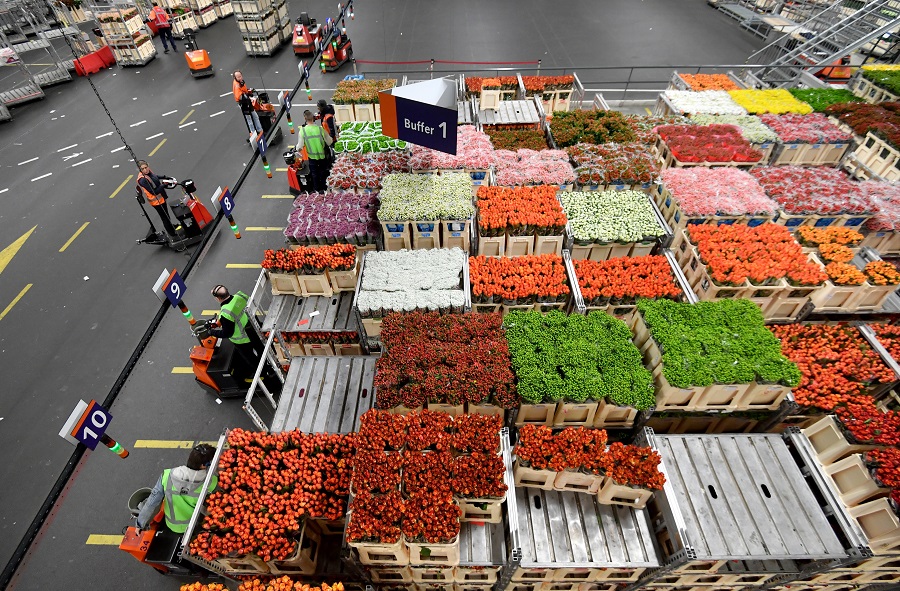
UK's departure from EU leaving firms unsure about future of $8b industry
AALSMEER, Netherlands - Every day from dawn, a fleet of forklift trucks carries crates of roses, tulips, chrysanthemums and 22,000 other flower varieties through the world's biggest flower market.
Yme Pasma, chief operating officer for Royal FloraHolland, keeps a watchful eye as workers sort stems arriving from all over the world before sending them off to destinations across Europe.
But this well-oiled operation, where robotic efficiency meets a riot of color and fragrance, is facing a challenge that could make the hardiest bloom wilt: Brexit.
"We are preparing for all kind of disturbances along the way," Pasma said at the huge warehouse in Aalsmeer, near Amsterdam. "The worst is a hard Brexit and we are preparing for that as well."
The Netherlands has long been famous for tulips, and flowers remain a vital part of the Dutch economy, with 7 billion euros ($8 billion) a year in sales.
Britain is the third largest market for the Netherlands' flower export business, after Germany and France, accounting for 850 million euros.
As it is now, flowers are flown in from around the world before being sent seamlessly to Britain or other parts of the European Union's single market.
However, the political chaos around Britain's impending exit from the EU on March 29 next year has left businesses unsure about what kind of trade arrangements-if any-will follow.
Businesses across the continent have been worrying about this since Britain voted to leave in 2016, but nowhere is the problem as pertinent as in a business where only the freshest produce will do.
A virtual Wall Street for flowers a few miles from Amsterdam's Schiphol airport, Royal FloraHolland acts as both auction house and distribution center, with more than 100,000 transactions a day.
Around a third of world flower trade passes through the Netherlands, with about 20 percent flown in direct from Africa via Amsterdam airport, and being checked by customs agents at the warehouse.
Most flowers go on to Europe, with Russia and the United States also major destinations. Those headed for Britain are sent by ferry-90 percent-or via the Channel Tunnel.
"It's a fresh product so we have to keep it cool and we have to bring it within one or two days to the customers," says Pasma.
But Brexit risks leaving some of those flowers-whether destined for vases in people's homes, wedding bouquets or other blooms for special occasions-stuck at the border.
Political chaos in London has raised fears that Britain could crash out of the EU without a deal, which would mean the return of customs and regulatory barriers.
"We've been preparing for two and a half years now, but still the uncertainty remains on what kind of scenarios it will be so we are waiting for the decision so we can really work on a solution," Pasma said
With historically close trading links to Britain, the Netherlands has been one of the countries most worried about the fallout from Brexit.
A Dutch official report this month estimated the cost to the Dutch economy of a no-deal exit at 2.3 billion euros up to 2023, while Dutch Prime Minister Mark Rutte was one of only three European leaders that British Prime Minister Theresa May visited this week as she tried to win support for changes to get a deal through parliament.
In fact Brexit has already hit the flower industry, said Pasma. However, he remains optimistic in the long run.
"People in the UK will still put flowers on their table and they will still come from the Netherlands," he said.
AGENCE FRANCE-PRESSE
 Others
Others
-

Like
(0)















I have something to say